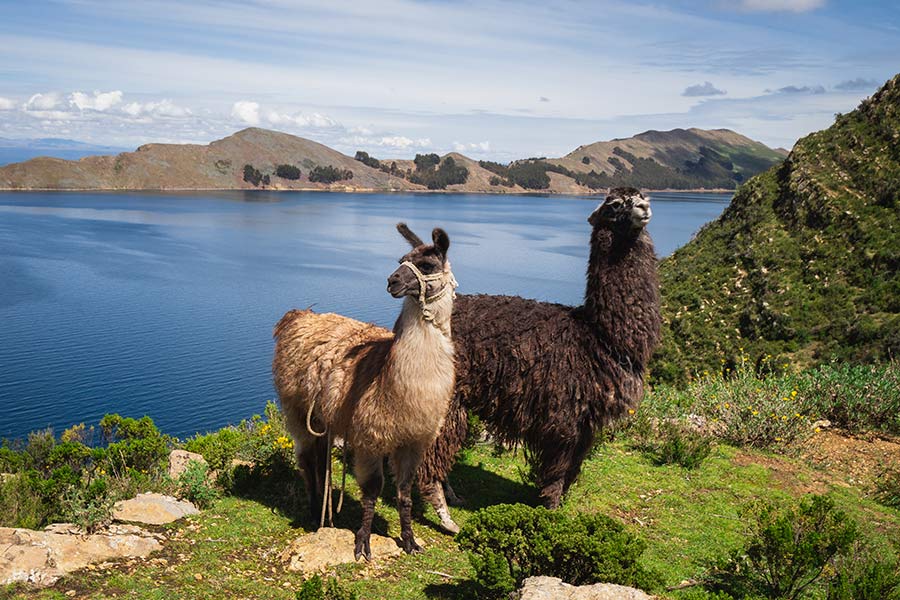Importance of Haltering Llamas and Alpaca

Have You Given a Death Sentence to the Lama You Love?
By Linda Hayes, Prescott Valley, AZ
RMLA Journal Fall 2014
We love our lamas. We make sure they have shelter and plenty of food but is that enough? NO! If we haven't taken the time to halter break them and teach them to lead, we are creating a potential disaster.
I do lots of rescue and have first hand experience on how not halter breaking your lama can hurt. When disaster hits, be it mud slide, flood, forest fire or whatever, a lama that can not be handled will not have much chance of survival. People who are trying to help don't have time to deal with unruly animals. They will leave them to die and concentrate on gentle ones that they can actually do something with.
Have you ever seen a llama with burns all over its body? I have and it's not pretty. Could this have been avoided? Probably, if it could have been haltered and led to safety.
I know of a llama that got washed down the river for several miles. It was only able to be rescued because the owner had it so gentle that the llama actually helped the rescuer and got the two of them safely back to shore.
But let’s say that your lama is rescued and taken to a facility where he is safe. The vet coming in to help will not be able to medicate him if he can't be handled. Volunteers just don't have the time to deal with uncooperative animals.
I get many lamas from loving homes who just let them live as well-fed pasture ornaments. They give them food and shelter but nothing else. They have not been worked with in years, usually need shearing and toes trimmed. How can this be done if the lama can't be caught and goes into a panic when you try to halter him?
But even if I manage to get a halter on him and take care of his physical needs, will he be adoptable? Most people want a lama that is at least halter broken. They want one they can take on walks or train to do other things. Who do you think gets the great home? It's not the ones who have never been handled.
So many owners say "Oh, he's real gentle. He will eat out of my hand and follow me around." This means nothing if I can't get a halter on him to keep him safe and healthy.
Come on, folks, if you love your lamas, train them! It's a lot easier to train a weanling than a ten-year-old. It's easier for the lama and much easier for the handler. Put a halter on them and tie them up once a month. Let them learn how to be comfortable on a tether. Teach them to pick up their feet and load in a trailer. You are not being fair to your lama if you don't do at least this much.
If you love your lamas, do something to make sure they will be safe and healthy no matter where they are. You owe it to them.
Like this article? Become a RMLA Member today!

